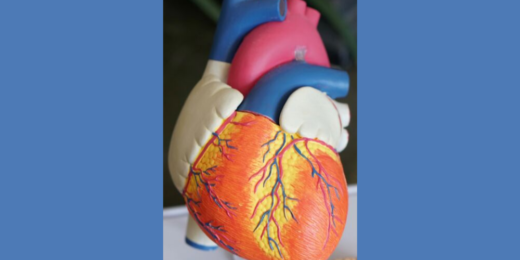Heart failure, as scary as the term is, can be a mostly manageable disease. As we've seen, proper medications and lifestyle behaviors are critical. While there are limitations of living with heart failure, with advances in medicine and knowledge, it's possible to largely live a normal life.
Depending on the type of heart failure that you have, certain symptoms are important to keep an eye on. For example, rapid weight gain or swelling in the legs or stomach are signs of worsening heart in diastolic heart failure. Chest pain, difficulty in breathing, fainting, extreme weakness, or irregular heartbeats all require medical attention.
Heart failure can be the results of a sudden heart attack that kills off portions of the heart, or it can be the result of coronary artery disease where narrowed blood flow does not adequately nourish the heart. Many of the factors that lead to heart failure may not be immediately apparent, so they often go ignored for years. For example, untreated high blood pressure can lead, over time, to heart failure or other conditions.
The three big classes of medications for heart failure patients all work on different mechanisms throughout the body to reduce blood pressure. ACE inhibitors, beta blockers, and diuretics act to reduce fluid retention in the body so that the already weakened heart does not have to work against the high blood pressure to pump the necessary amount of blood. Taking the right medication according to instructions is a vital part of managing heart failure.
Lifestyle factors including adequate aerobic exercise and a low-sodium diet are not only important for treating heart failure, they also act as vital prevention methods.
"Even for those at low-risk for heart failure, there are heart healthy foods that can guide you when choosing meal options. Foods such as fruits, vegetables, beans, and whole grains are great options for any individual," said Stanford internal medicine physician Randall Stafford, MD, PhD. "Also, severe heart failure patients should be aware of how much fluid they are getting, and regulate fluid and water intake as recommended by your doctor."
Often times, heart failure patients present with several other conditions, usually diabetes, high blood pressure, or kidney disease.
"Treating heart failure is a team sport and includes close management by doctors, nurses, pharmacists, patients, and families. Generally, because those with heart failure tend to be older individuals, they will need help from caretakers and family members in helping to manage the disease, both physically and socially," said Stanford cardiologist Fatima Rodriguez, MD.
Unfortunately, heart failure is a progressive and chronic condition for which there is no easy cure. Patients with the most severe heart failure may need to discuss treatment options such as a heart transplant or left ventricular assist device, which helps the heart pump.
For everyone with heart failure, strategies involving combinations of drugs can slow the worsening of this condition. In some rare cases, heart failure may even be reversed. A second key to success with heart failure, is focusing on healthy lifestyle behaviors. Embracing a heart-healthy diet, minimizing salt intake, and increased physical activity are some of the best ways to treat heart failure.
Heart failure is not necessarily an end-stage disease for everyone. Those who thrive despite the disease do so by taking responsibility for managing the condition -- with the help of caregivers.
This is the final in a series of blog posts, Demystifying Heart Failure, to help patients and family members better understand and help mitigate heart failure.
Min Joo Kim is a master's degree student in Community Health and Prevention Research at Stanford studying the patient experience for those with chronic conditions and identifying barriers to treatment. Randall Stafford, MD, PhD, professor of medicine, focuses on strategies to improve chronic disease treatment, including engaging patients in their own health care.
Image by silviarita






